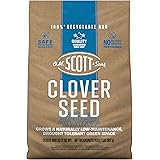zunatu 10x2x1ft(2 Pack) Galvanized Raised Garden Bed,Outdoor Planter Box Metal Patio Kit Planting Bed for Vegetables Flowers and Succulents,Silver
$69.99 (as of 17:22 GMT -05:00 - More infoProduct prices and availability are accurate as of the date/time indicated and are subject to change. Any price and availability information displayed on [relevant Amazon Site(s), as applicable] at the time of purchase will apply to the purchase of this product.)OYEAL Raised Garden Bed Outdoor 32" Tall Elevated Planter Boxes with Trellis & Legs, Standing Flower Beds for Gardening, Vegetables, Flowers, Herbs, Backyard, Black
$46.99 (as of 14:17 GMT -05:00 - More infoProduct prices and availability are accurate as of the date/time indicated and are subject to change. Any price and availability information displayed on [relevant Amazon Site(s), as applicable] at the time of purchase will apply to the purchase of this product.)Composting is a simple and effective way to reduce food waste while creating nutrient-rich fertilizer for your garden. In this blog post, we’ll explore the basics of composting, how to start a compost pile, tips for adding the right ingredients to your compost pile, and using compost as fertilizer in your garden.
The Basics of Composting: What You Need to Know
Composting is the process of breaking down organic matter into smaller pieces that can be used as fertilizer. To get started with composting, you will need three things: brown material (such as leaves or shredded paper), green material (such as fruit and vegetable scraps), and water. These materials should be mixed together in a container or pile, where they will decompose over time due to the action of microorganisms such as bacteria and fungi.
How to Start a Compost Pile and Keep it Healthy
To start a compost pile, begin by selecting an area that receives plenty of sunlight and has good drainage. Next, create a layered structure within your compost bin or pile, alternating between layers of browns and greens. Be sure to keep your compost moist but not too wet, and turn it regularly to aerate the mixture and encourage decomposition. It’s also important to keep your compost pile at the correct temperature – ideally around 130-150 degrees Fahrenheit – which helps to kill off pathogens and speed up the decomposing process.
Tips for Adding the Right Ingredients to Your Compost Pile
When adding ingredients to your compost pile, there are several things to consider. Firstly, aim to achieve a balance between browns and greens in your mix. This means including both carbon-rich materials (such as dead leaves) and nitrogen-rich materials (such as fresh grass clippings). Additionally, try to add a variety of different types of materials to your compost pile, including both finely chopped and coarse materials. Finally, avoid adding any meat or dairy products to your compost pile, as these can attract unwanted pests and slow down the decomposition process.
Using Compost as Fertilizer in Your Garden
Once your compost has fully decomposed, it’s ready to use as fertilizer in your garden. Simply spread a thin layer of compost onto the soil surface and work it in gently with a rake. Compost is rich in nutrients such as nitrogen, phosphorus, and potassium, which help to promote healthy plant growth and development. Additionally, compost helps to improve soil structure and increase its ability to retain moisture, making it an all-around great addition to any garden.
In conclusion, composting is a fun and rewarding way to reduce food waste while creating valuable fertilizer for your garden. By following these basic steps and incorporating some creativity and experimentation, anyone can become a successful composter!
Related Content
- One Size Doesn’t Fit All
- Colorado Becomes The 2nd State To Allow Human Composting
- VMC holds on-site composting sessions to improve SS ranking | Vijayawada News – Times of India
- NY food scrap law to take effect Jan. 1 – Times Union
- HB Fuller Launches Game-Changing Compostable Adhesives for Flexible Packaging











































